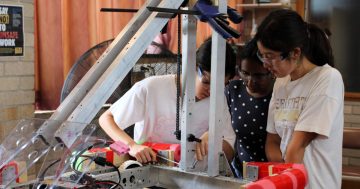Valerie Bolden-Barrett* has found a study revealing that workers would prefer to lose their jobs to a robot that to another person…..

Image by Peggy und Marco Lachmann-Anke
Employees are more upset about losing their jobs to other workers than to robots, according to a new study.
The Technical University of Munich (TUM) and Erasmus University in Rotterdam found that people generally favour people replacing others on the job over robots, except when it comes to their own jobs.
Respondents would rather be replaced by technology than humans but have a greater fear of robots taking over their jobs in the long run.
Researchers explained the cause of this paradox as the tendency for people to relate more to each other than machines; therefore, being replaced by a machine feels less harmful to their self-worth.
Those feelings are also less impacted when the person replacing them relied on tech abilities, like artificial intelligence, in their work.
Researchers also noted that employers may need to upskill workers to prepare them for technological jobs.
“For people who have lost their job to a robot, boosting their self-esteem will be less of a priority,” Christoph Fuchs, a professor of the TUM School of Management, said in a media statement.
“In that case it is more important to teach them new skills that will reduce their concerns about losing out to robots in the long term.”
Experts disagree about the future effects of automation on the workforce, but most reports come to the same conclusion regarding the topic: employees will need to be trained for the future of work.
Under half of tech industry HR managers in a KPMG report said they believe technology will usher in more jobs than it takes out, despite other studies noting that technology is set to reinvent, not eliminate, a number of jobs in certain industries, like manufacturing.
Notably, only 42% of tech company CEOS plan to upskill their employees in the next three years, the KPMG report added, despite general agreement that workers in the lower-skilled, repetitive-motion-type jobs, particularly jobs held by women, are the most at risk for being replaced.
Perhaps the most promising sign is that many — if not most — employees say that they’re ready to be upskilled.
Forward-thinking HR leaders may capitalise on this sentiment among workers and invest in the training and development needed to prepare for the future of work.
Amazon, for example, recently pledged $700 million to train up 100,000 members of its workforce for fast-growing jobs of the future, but they are far from alone in recognising the growing need.
* Valerie Bolden-Barrett is a business writer and content specialist and Contributor to HR Dive.
This article first appeared at www.hrdive.com











